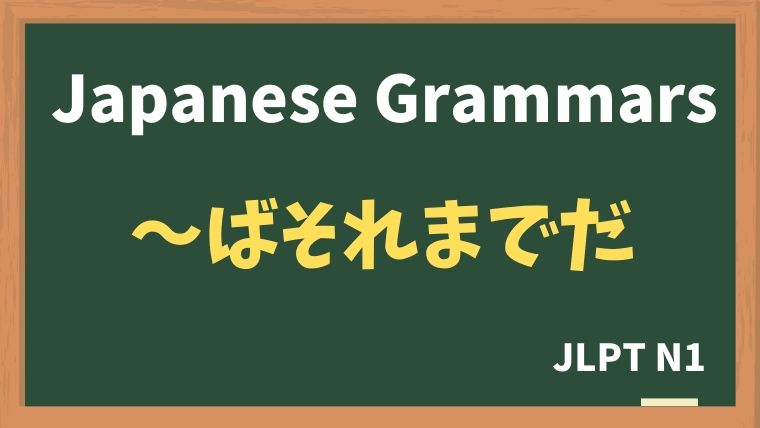
Explanation:〜ばそれまでだ / 〜たらそれまでだ
fa-check-circleMeaning
"もし〜したら、全てが終わってしまう / 〜したら、全てが無駄になってしまう"
”if 〜 is done, everything will be useless.”
Used to convey the idea that if a certain negative condition or event happens, everything will be over, futile, or meaningless. These expressions emphasize the finality or futility of a situation once a particular condition is met.
fa-check-circleForm
V(ba form)+ それまでだ
V(ta form)ら + それまでだ
fa-check-circlePoints
- Finality: Both expressions indicate that once a specific negative condition occurs, nothing more can be done. It's a dead-end or the end of the matter.
- Negative Consequences: They often imply that something, regardless of effort or success up to that point, will become pointless if a particular situation arises.
- Hypothetical Situations: These expressions are frequently used in hypothetical situations where the speaker is warning or acknowledging the possibility of a negative outcome.
fa-check-circleJLPT Level
N1
Sample sentenes
どんなにお金があっても、死んでしまったらそれまでだ。
No matter how much money you have, if you die, then it’s all over.
どんなに辛くても、あきらめたらそれまでですよ。
No matter how tough it gets, if you give up, then that’s the end of it.
一生懸命勉強しても、試験の日に遅刻してしまったらそれまでだ。
Even if you study hard, if you arrive late on the day of the exam, then it’s the end of the line.
いくら参考書を買っても、使わなければそれまでだ。
No matter how many reference books you buy, if you don’t use them, then it’s all for nothing.
いくら高そうな服を買っても、着なければそれまでですよ。
No matter how expensive the clothes you buy are, if you don’t wear them, then it’s all for nothing.
高性能なパソコンを買っても、壊れてしまえばそれまでだ。
Even if you buy a high-performance computer, if it breaks, then it’s the end of the line.
Vocabulary
| Japanese |
English | |
| 参考書 | さんこうしょ | reference book / textbook |
| 高性能 | こうせいのう | high spec |






